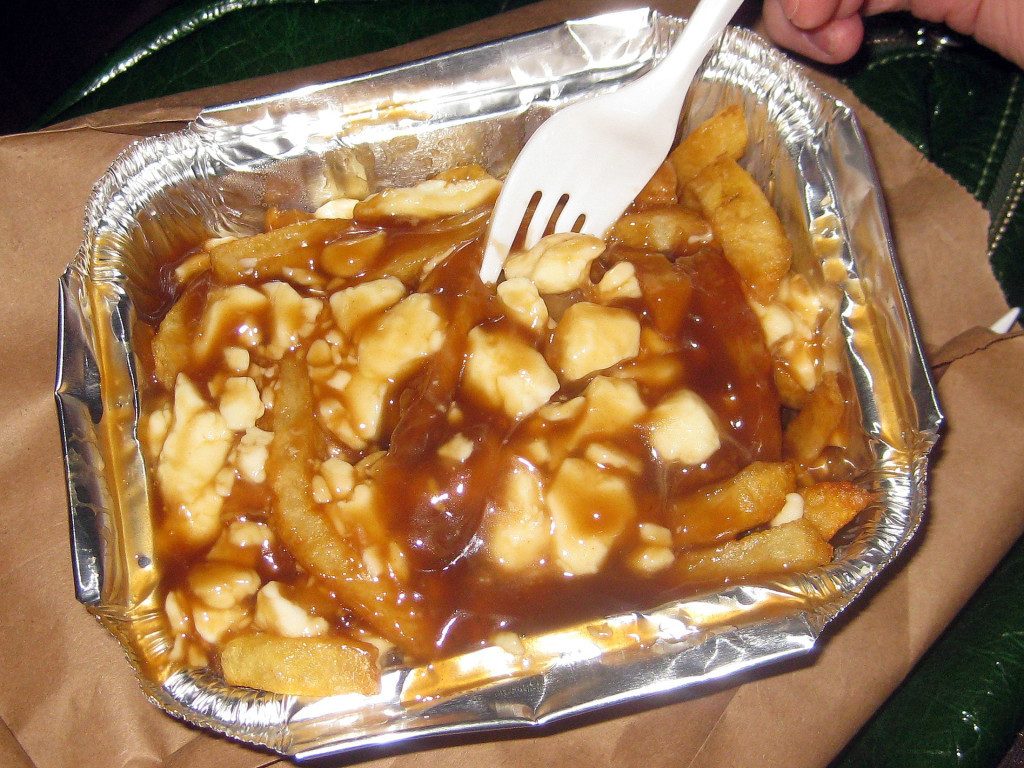
In defence of poutine
By Idrian Burgos, Contributor
On an unusually bright day, with people going to and fro in their business, I walked down the street. All my class days fortunately have two-hour gaps between them, which means enough time for lunch and some rest. One crosswalk and I was at the River Market, my regular lunch spot. A renovated community market, it now houses several shops and dining places. Anything from usual grocery merchandise to difficult-to-find wines can be bought, and anything from Hispanic food to fish and chips can serve as a filling meal. In the mood for something exotic I was not. Rather, I went to a stall that serves diner food and ordered one of my favourite eats. A few minutes later and I took a small bowl of poutine to my table.
Other eateries at the market offered variations on the poutine dish—like the Japanese curry poutine from the eatery that serves seafood—but I had no inclination towards trying those variations. Classic poutine felt more comfortable, and it was a rich treasure to behold and taste. The sight of creamy, melted blocks of cheese accompanied by a rich and shiny helping of earthy gravy, covering the lightly wood-coloured fries like drapes, was only a preliminary to the subsequent experience of eating the whole thing. The whole decadent image was a preview of what was to come, if a pale preview. The warm tastiness of the gravy, coupled with the dairy luxuriousness of the cheese curds, and the fries that provided the needed hardiness to the whole affair. It was a homely paradise, where one feels cozy and sheltered without needing to do anything. My body received its needed nourishment and defence against the cold weather. I continued eating the poutine with only a few breaks to let my tongue cool off.
“Looks like you’re eating one of those kinds of things.”
I was kicked out of my dream. A gentleman stood near the table. He looked normal, but he was probably one of those fitness-crazy people, so widespread these days. I asked him if he had a problem.
“Would you mind me sitting with you at this table?”
I told him it didn’t matter. Once seated, he took a sandwich out from his small bag. It was one of those sandwiches that physically active people eat, and he ate it with obvious satisfaction and delight. I resumed eating my greasy comfort food as normally as possible.
“You know what, just a word of advice, if you won’t mind me saying. You really have the potential to shed a few pounds.”
I asked him what he meant.
“Like, you know, more exercise, improved diet, cut back on some foods.”
“Like this poutine?”
“Not that I’m insulting you based on what you’re eating, but you can really shed a few pounds by eating less and better. Cutting back on grease, for instance.”
I tried to assure him with my posture that I didn’t take his words insultingly. “You’re right. Exercise and a better diet are not bad things. But you know what? I can only do that out of my own volition. What I’m eating here is not so much grease as it is comfort. It’s not something cool or fashionable or with decor, but plain, unadorned food, for those who don’t care about embellishments or calls to fitness. It’s not like one of those trendy dishes nowadays, but something for plain-minded folks. Yes, it does add a few pounds, but then who cares? It’s all about simple satisfaction!”
I attempted to say those words politely, and he seemed to reciprocate the politeness. We both went back to our eats, and my lunch break ended without much trouble, but I was left to think: suddenly asking about one’s meal is infringing. Then again, a proper explanation of poutine’s advantages is sometimes necessary.

